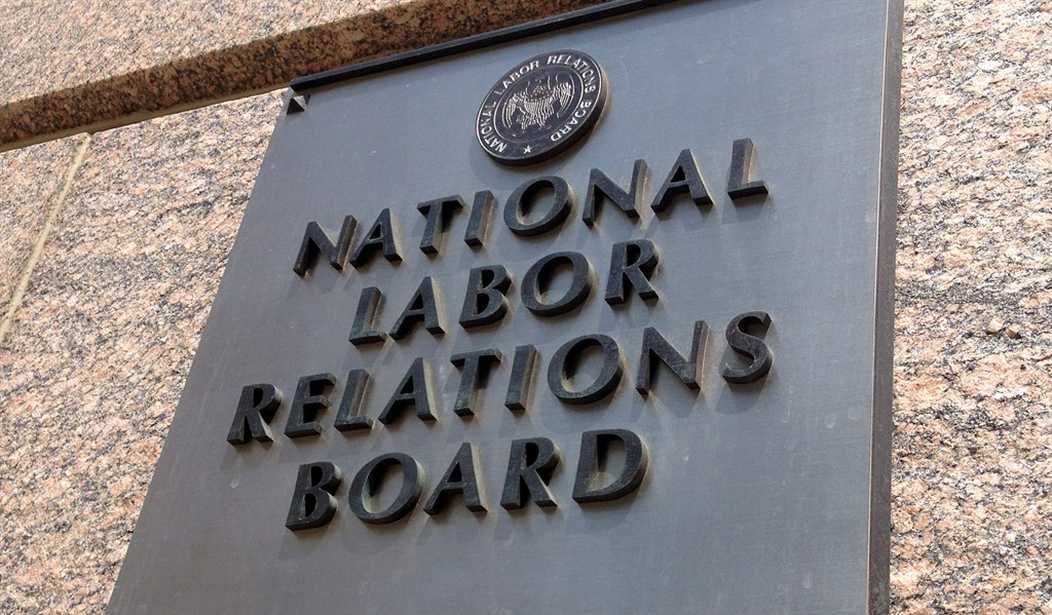It’s been a good week for organized labor. Last Saturday, the SEIU sponsored a “convention” of fast food workers and union allies in Chicago. National media outlets duly reported that workers “unanimously” voted to add civil disobedience to their protests against the industry, including the use of sit-down strikes and other tactics intended to shut down targeted businesses. A few days later, the general counsel of the National Labor Relations Board determined that McDonald’s Corporation and its franchisees could be held as joint-employers of workers at franchised locations. The NLRB decision sent shockwaves across the franchise industry, suddenly casting into doubt decades of legal precedent that clearly defines the distinct entities.
While continued media coverage and the NLRB ruling may seem like a spate of good luck for unions, these events are merely the second act in a carefully orchestrated production directed by labor bosses. The first act, of course, has been the two years of staged protests mostly aimed at the fast food industry, including the timed invasion of corporate headquarters to coincide with annual shareholder meetings. Who can forget the dramatic image of Mary Kay Henry, president of the SEIU, being arrested last month outside McDonald’s corporate office in Oak Brook, Illinois? The pre-planned arrest was one of countless made-for-TV moments crafted by labor organizers to shame various businesses and shape public opinion.
Labor groups have gained plenty of allies during their seemingly endless assault on corporations. Nonprofit “worker centers” – subsidized by union donations – have proved invaluable in giving a faux, worker-led face to protests. The SEIU and AFL-CIO have invested more than $35 million in worker centers, realizing the huge benefit that such groups provide because their activities currently fall outside U.S. labor laws. National media have been kind to organized labor as well, with outlets like the New York Times providing regular, sympathetic coverage on the fast food strikes.
Perhaps the unions’ biggest benefactor and partner has been the NLRB. Stacked with union-friendly appointees, the agency has gone out of its way to buoy labor’s assault on non-union targets. Big Labor has struggled to organize fast foodrestaurants en-mass because of the franchisee business model. Decades of case law have supported the franchise business model and upheld the distinction between the roles and functions of franchisors and franchise investors. The NLRB ruling – which is certain to be contested in the courts – sets the stage to question and even eradicate that model.
Recommended
The NLRB decision also hints that a third (and the most dramatic) act in the labor activists’ campaign may be around the corner. Here’s what we can expect: Apart from more fast food protests that include sit-down strikes, unions will continue their relentless efforts to drive a wedge between franchisees and franchisors. The decision by the NLRB general counsel – a former union official himself – gives the SEIU fodder to file endless complaints no matter how frivolous against nearly 14,000 independently owned and operated locations bearing the McDonald’s name. At the same time, the SEIU will inundate the McDonald’s corporate office with legal filings meant to push the company into a neutrality agreement.
A deluge of legal filings will also allow the unions to more accurately dissect which locations are corporate and which are operated by franchisees, an essential element for targeted organizing drives. In a recent blog, Wade Rathke, a former SEIU officer and the founder of disgraced activist outfit ACORN, called this process a “nightmare” for unions as they filed representation petitions against various outlets. Rathke went on to say that joint-employer status is not a game-changer for organized labor. His claim should be taken with a grain of salt because behind all the staged protests and paid protesters, the sponsored conventions and dubious arrests, the SEIU and other unions are desperate to organize the vast ranks of the fast food employees, whether they work for the corporation or a franchisee in Kansas. The most efficient way to do that is to link the distinct business entities and tear down the legal barriers that have hampered unionization of the fast food industry until now.






















Join the conversation as a VIP Member